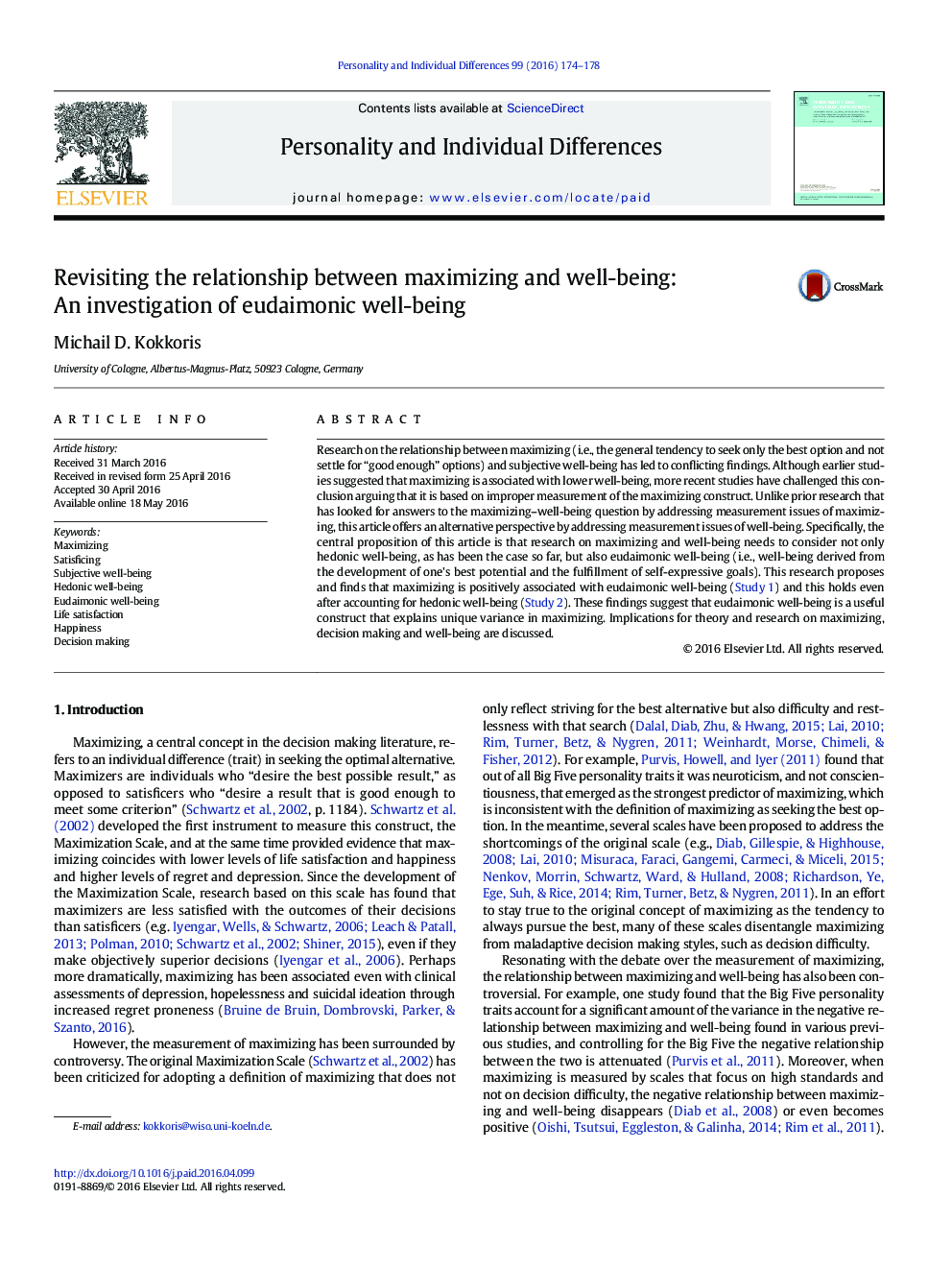| Article ID | Journal | Published Year | Pages | File Type |
|---|---|---|---|---|
| 889717 | Personality and Individual Differences | 2016 | 5 Pages |
•This research examines the relation between maximizing and eudaimonic well-being.•Maximizing (high standards) is positively associated with eudaimonic well-being.•Eudaimonic well-being explains unique variance in maximizing over hedonic well-being.
Research on the relationship between maximizing (i.e., the general tendency to seek only the best option and not settle for “good enough” options) and subjective well-being has led to conflicting findings. Although earlier studies suggested that maximizing is associated with lower well-being, more recent studies have challenged this conclusion arguing that it is based on improper measurement of the maximizing construct. Unlike prior research that has looked for answers to the maximizing–well-being question by addressing measurement issues of maximizing, this article offers an alternative perspective by addressing measurement issues of well-being. Specifically, the central proposition of this article is that research on maximizing and well-being needs to consider not only hedonic well-being, as has been the case so far, but also eudaimonic well-being (i.e., well-being derived from the development of one's best potential and the fulfillment of self-expressive goals). This research proposes and finds that maximizing is positively associated with eudaimonic well-being (Study 1) and this holds even after accounting for hedonic well-being (Study 2). These findings suggest that eudaimonic well-being is a useful construct that explains unique variance in maximizing. Implications for theory and research on maximizing, decision making and well-being are discussed.
